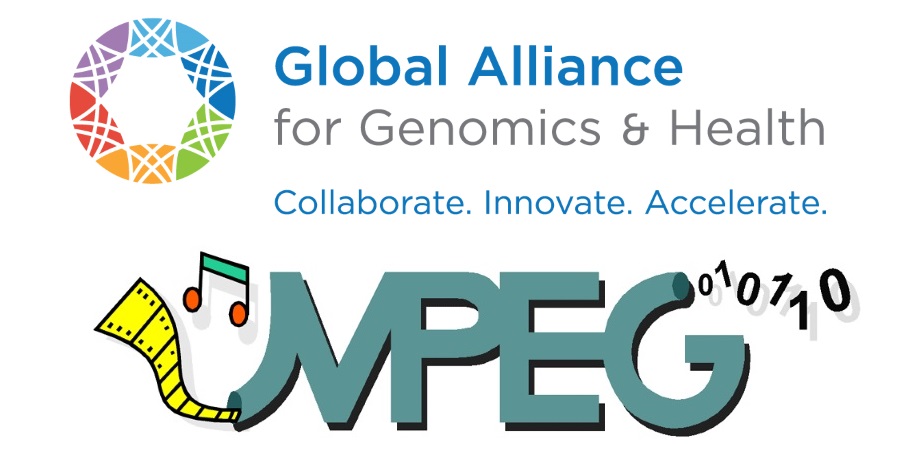GA4GH – MPEG, Basel 3rd October 2018
Call for Contributions
The amount of genome sequencing data generated day by day is either comparable or larger than other big data problems. Shrinking costs of data alone do not provide affordable solutions to the ambition of making genomic medicine common practice. However, storage costs are not the only factor to consider because genomic data, once generated, have to be made available to the scientific community for frequent and repeated accesses.
Current sequencing technologies compensate the errors generated by intrinsic noisy processes by generating redundant data and associated metadata (i.e. quality values). Thus compression approaches are effective solutions to reduce and mitigate the costs and the technological limitations related to the handling of extremely large volumes of data.
The heterogeneity of genome sequencing data and the diversity of the available compression solutions pose several challenges to the quest for an ideal technology able to deliver, at the same time, high compression ratios, high coding and decoding speed, efficient selective access to data and guaranteed interoperability among applications while respecting a variety of data protection and privacy requirements.
The goal of this workshop is to collect technical contributions on emerging and new compression technologies with particular attention to:
- DNA sequencing data compression
- Selective access and processing in the compressed domain
- Emerging standard frameworks for the specification, representation and compression of genomic sequencing data
- Interoperability of genomic sequencing data formats, applications standard frameworks and APIs
- Use cases and processing applications requiring genomic data/metadata compression and protection·
Interested authors are invited to submit an abstract of no more than 600 words (excluding pictures and graphics which are welcome) describing their technical work by 31st August 2018.
The submission should indicate the preferred form of the contribution:
- Oral presentation
- Poster
- Demonstration
Submissions of abstracts must be sent by email to:
- Thomas Keane: tk2@ebi.ac.uk
- Marco Mattavelli: marco.mattavelli@epfl.ch





